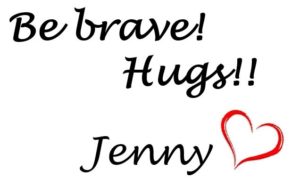How thick is the veil between your instinct and objective truth?

“Go with your gut instinct” people say and I believe it’s sound advice. Your higher self, often hidden in your subconscious doing battle with your lower self, already know the best course of action to take from where you are. But I’ve learnt to be cautious with my definition of instinct. The urge, originating from my belly area, to eat something sweet is NOT a gut instinct worth following.
I believe the phenomenon, named instinct, is your ability to connect to your aggregated knowledge. It’s a way to describe how everything you’ve ever heard or seen is stored within you and how your brain can put things together in a way that your conscious mind usually isn’t capable of.
Learning to tap into your instinct is a powerful tool for making progress and reaching your goals.
Sometimes it’s not instinct that pulls your strings
In some cases instinct is something that you might rightfully call fear. When an antelope looks up from the grass and senses a threat, chances are that there’s in fact a lioness crawling near. The feeling you get as a woman walking a dark street, in a rough area, is also fear/instinct. You are in fact in danger and your body knows it. This kind of instinct, the one that saves you when you’re truly threatened, we’ll call legitimate fear.
So left is the fear that doesn’t serve us. The feelings you get when your body believes you are threatened because of the thoughts you think. Picture your boss or coworker giving you negative feedback on your project, you putting on a new dress but go completely unnoticed by your spouse or your children coming home with bad report cards. If your thoughts turn negative in these situations your body will interpret them as threats to your safety and you will feel fear. It’s easy to interpret that fear as instinct and subsequently believe you should act on it.
Making decisions, even to speak, from an instinct based on this unreliable fear will not serve you.
Another emotion that can be falsely interpreted as helpful instinct is laziness. “I don’t feel like doing this or that or anything today”. You might tell yourself that it’s better to rest today and you might be right! But sometimes the laziness comes from having impotent goals. Your instinct to rest comes from not knowing what to work on.
Is your instinct based on objective truth?
Your body uses fear to “help” you stay alive. The brain also has some tricks that serve us in an evolutionary perspective but not always in the short term lifespan of a human. The tricks I’m referring to here are “biases” that our brains have evolved that impact our way of interpreting the world and our instincts.
Here are a few defined by Wikipedia:
A bias is disproportionate weight in favor of or against one thing, person, or group compared with another, usually in a way considered to be unfair.
- Confirmation bias is the tendency to search for, interpret, favor, and recall information in a way that confirms your preexisting belief.
- You’re more inclined to believe something if it rhymes. Rhyme as reason-effect.
- Response bias (also called survey bias) is the tendency of a person to answer questions on a survey untruthfully or misleadingly. For example, they may feel pressure to give answers that are socially acceptable
I found this poster valuable when researching biases: http://www.visualcapitalist.com/18-cognitive-bias-examples-mental-mistakes/
Biases are like mental shortcuts that help us make rapid decisions. If we didn’t use them we’d be slowed down considerably. It’s good to know about biases to mitigate the risks involved when acting according to them.
Another factor to consider, when learning to trust or distrust your instinct, is how it’s impacted by your surroundings. The culture and time period, the climate and current trends, the religious and political arena all impact your decisions. There are a couple of cool renditions describing how these surroundings have changes for humans. Look at them and ask yourself if people in different time periods, during these different circumstances, would develop different instincts.
Values – World Value survey: https://youtu.be/ABWYOcru7js
Human population through time: https://www.youtube.com/watch?v=PUwmA3Q0_OE
How can you become aware of your programming?
Since your personal experiences has led to the knowledge stored in your mind, your intuition will be different for you than others intuition will be for them. You mind is programmed according to your specific circumstances. Your childhood, fears, peer group, time and cultural surroundings will impact your intuition.
Decisions based on objective truth is preferred over letting biased half truths push you in a direction you’re unaware of. But how can you become aware of the programming you have and when to trust your instinct?
Here are some suggestions:
- Spend time with people that you usually don’t spend time with and travel to new places. This will open your eyes to how your surroundings impact you.
- Read about the brain and about biases – knowledge creates awareness
- Define and learn to recognize when you’re “mentally stable”. The definition for me is when I’m breathing calmly, I feel love or joy instead of irritation or sadness. If I’m rehearsing conversations with the intention to WIN instead of focusing on the desired positive win-win outcome I’m also not there. Mentally stable means you’re not driven by unsupporting thoughts or feelings.
